I came across the same issue
In [1]: import tensorflow
---------------------------------------------------------------------------
ImportError Traceback (most recent call last)
/usr/local/lib/python3.5/site-packages/tensorflow/python/pywrap_tensorflow.py in <module>()
40 sys.setdlopenflags(_default_dlopen_flags | ctypes.RTLD_GLOBAL)
---> 41 from tensorflow.python.pywrap_tensorflow_internal import *
42 from tensorflow.python.pywrap_tensorflow_internal import __version__
/usr/local/lib/python3.5/site-packages/tensorflow/python/pywrap_tensorflow_internal.py in <module>()
27 return _mod
---> 28 _pywrap_tensorflow_internal = swig_import_helper()
29 del swig_import_helper
/usr/local/lib/python3.5/site-packages/tensorflow/python/pywrap_tensorflow_internal.py in swig_import_helper()
23 try:
---> 24 _mod = imp.load_module('_pywrap_tensorflow_internal', fp, pathname, description)
25 finally:
/usr/local/lib/python3.5/imp.py in load_module(name, file, filename, details)
241 else:
--> 242 return load_dynamic(name, filename, file)
243 elif type_ == PKG_DIRECTORY:
/usr/local/lib/python3.5/imp.py in load_dynamic(name, path, file)
341 name=name, loader=loader, origin=path)
--> 342 return _load(spec)
343
ImportError: libcudnn.so.5: cannot open shared object file: No such file or directory
During handling of the above exception, another exception occurred:
ImportError Traceback (most recent call last)
<ipython-input-1-a649b509054f> in <module>()
----> 1 import tensorflow
/usr/local/lib/python3.5/site-packages/tensorflow/__init__.py in <module>()
22
23 # pylint: disable=wildcard-import
---> 24 from tensorflow.python import *
25 # pylint: enable=wildcard-import
26
/usr/local/lib/python3.5/site-packages/tensorflow/python/__init__.py in <module>()
49 import numpy as np
50
---> 51 from tensorflow.python import pywrap_tensorflow
52
53 # Protocol buffers
/usr/local/lib/python3.5/site-packages/tensorflow/python/pywrap_tensorflow.py in <module>()
50 for some common reasons and solutions. Include the entire stack trace
51 above this error message when asking for help.""" % traceback.format_exc()
---> 52 raise ImportError(msg)
53
54 # pylint: enable=wildcard-import,g-import-not-at-top,unused-import,line-too-long
ImportError: Traceback (most recent call last):
File "/usr/local/lib/python3.5/site-packages/tensorflow/python/pywrap_tensorflow.py", line 41, in <module>
from tensorflow.python.pywrap_tensorflow_internal import *
File "/usr/local/lib/python3.5/site-packages/tensorflow/python/pywrap_tensorflow_internal.py", line 28, in <module>
_pywrap_tensorflow_internal = swig_import_helper()
File "/usr/local/lib/python3.5/site-packages/tensorflow/python/pywrap_tensorflow_internal.py", line 24, in swig_import_helper
_mod = imp.load_module('_pywrap_tensorflow_internal', fp, pathname, description)
File "/usr/local/lib/python3.5/imp.py", line 242, in load_module
return load_dynamic(name, filename, file)
File "/usr/local/lib/python3.5/imp.py", line 342, in load_dynamic
return _load(spec)
ImportError: libcudnn.so.5: cannot open shared object file: No such file or directory
Failed to load the native TensorFlow runtime.
See https://www.tensorflow.org/install/install_sources#common_installation_problems
for some common reasons and solutions. Include the entire stack trace
above this error message when asking for help.
I have installed cudnn 6.0 while it needs libcudnn.so.5, apparently it couldn't find libcudnn.so.5. It seems that your tensorflow needs cudnn 5.x, so install cudnn 5.x

Make sure you have already installed cuda 8.0 and exported the PATH and LD_LIBRARY_PATH
To install cudnn 5.x, try the following commands
Extract tgz files
$ tar -zxvf cudnn-8.0-linux-x64-v5.1.tgz
Check the files
$ cd cuda/lib64/
$ ls -l
total 150908
lrwxrwxrwx 1 doom doom 13 Nov 7 2016 libcudnn.so -> libcudnn.so.5
lrwxrwxrwx 1 doom doom 18 Nov 7 2016 libcudnn.so.5 -> libcudnn.so.5.1.10
-rwxr-xr-x 1 doom doom 84163560 Nov 7 2016 libcudnn.so.5.1.10
-rw-r--r-- 1 doom doom 70364814 Nov 7 2016 libcudnn_static.a
Here you will see 2 symbolic link files, and just copy libcudnn.so.5.1.10 and libcudnn_static.a to /usr/local/cuda/lib64
Make symbolic link files
$ cd /usr/local/cuda/lib64/
$ sudo ln -s libcudnn.so.5.1.10 libcudnn.so.5
$ sudo ln -s libcudnn.so.5 libcudnn.so
$ ls -l libcudnn*
lrwxrwxrwx 1 root root 13 May 24 09:24 libcudnn.so -> libcudnn.so.5
lrwxrwxrwx 1 root root 18 May 24 09:24 libcudnn.so.5 -> libcudnn.so.5.1.10
-rwxr-xr-x 1 root root 84163560 May 24 09:23 libcudnn.so.5.1.10
-rw-r--r-- 1 root root 70364814 May 24 09:23 libcudnn_static.a
Copy cudnn.h in include directory to /usr/local/cuda/include
$ sudo cp cudnn.h /usr/local/cuda/include/
Hope it will help you!



